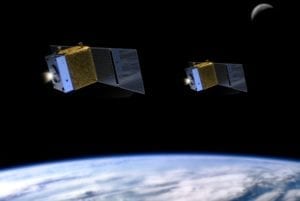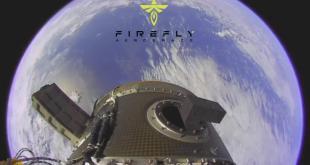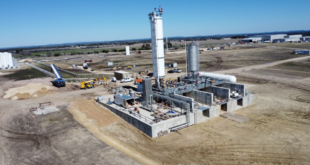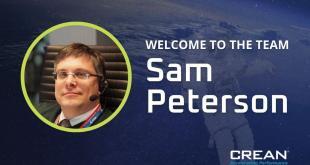
Benchmark Space Systems, a leading provider of in-space propulsion systems for small satellites, announced a permanent licensing partnership to integrate Tesseract Space intellectual property, assets, and staff to elevate Benchmark’s major expansion in the development, deployment, and support of its exclusively non-toxic chemical propulsion solutions for global rideshare markets.
Both Benchmark and Tesseract were founded in 2017 on green propulsion technologies designed to safely and quickly deliver small rideshare satellites the last leg of their space journey to an allotted orbital location, often in hours versus weeks using electric propulsion. Benchmark’s non-toxic propulsion solutions offer as much as 1000x the thrust of electric systems.
By integrating Tesseract’s intellectual property, expertise, proven test capabilities and product set into its expanding line of end-to-end solutions, Benchmark will address ever-changing market demands with a breadth of green, launch-vehicle agnostic thrusters and services supporting 1U CubeSats through ESPA-class (1-to-500kg small satellites), large lunar landers, and orbital transfer vehicles (OTVs).

“This permanent partnership has Benchmark Space Systems extremely well positioned to help lead the emerging small satellite rideshare era, with innovative and affordable non-toxic propulsion solutions aimed at driving value in space by dramatically cutting costs, risk and time to orbit,” said Ryan McDevitt, Benchmark Space Systems CEO. “Benchmark has the financial strength, unsurpassed experience with 20 employees keenly focused on small satellite propulsion, offices on both coasts, a robust supply chain and new manufacturing facilities to empower our long-term commitment to new space initiatives and innovations across the small satellite market.”
Benchmark has already won government and commercial contracts on the heels of the agreement, with its new Halcyon propulsion system – a 1 newton thruster in rapid development to debut aboard two small satellites scheduled to launch aboard a SpaceX Falcon 9 in December. Benchmark will also demonstrate its Starling thruster (formerly DFAST) aboard a 3U small satellite set to liftoff with Firefly Aerospace on the inaugural Alpha flight in October. Starling is scalable from 3U to 24U satellites and features a patented On-Demand Pressurization System (ODPS) to lower launch risks and integration, handling and range safety costs.
“Getting into orbit quickly, affordably and safely is the top priority for small satellite missions looking to start generating revenue within days, not months of their launch into space. Benchmark Space Systems has the leading-edge non-toxic chemical propulsion and support solutions to make that happen,” said Erik Franks, Tesseract Co-Founder who now joins Benchmark’s leadership team. “Rideshare and OTV competition is a huge catalyst for propulsion market growth, and Benchmark is well ahead of the curve with required green solutions that far exceed the performance of electric propulsion.”
 SpaceWatch.Global An independent perspective on space
SpaceWatch.Global An independent perspective on space




